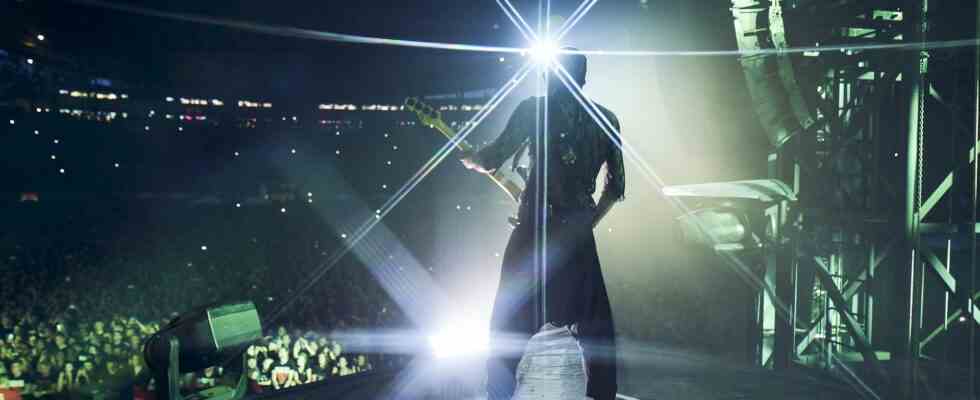Status: 06/28/2022 08:17 a.m
Musicians have always financed themselves through live performances. Record and CD sales were also an important source of income for a long time. Now streaming is booming – and above all others are benefiting.
Around the turn of the millennium, songs were increasingly being listened to and exchanged illegally – without payment – on the Internet. The music industry was threatened with financial ruin. Streaming services seemed to come to the rescue. Customers pay a flat rate per month and in return get access to a huge worldwide repertoire. Many welcome that. Roland Kaiser, for example, thinks it’s wonderful that someone who has talent puts a song of their own on the Internet and can achieve enormous success with it.
Downsides of streaming services
Julianna Townsend, a singer by training, has the most fans on internet music streaming services. One of her songs is particularly popular. On Spotify, this song even has 1.4 million streams. Pretty good for a newcomer. But she can’t make a living from it. For 1.4 million clicks in two years she gets uIn the end, in some months it’s just 20 to 30 euros. Billing is based on the number of views. She gets 0.001 euros per stream.
Rock icon Peter Maffay is involved in a talent show for the serious promotion of young talent. But even the most talented young artists hardly find an economic basis for a lasting career, according to his observation. The main beneficiaries are the big publishers and streaming service providers.
Maffay criticizes “exploitation”
Maffay thinks that’s exploitation. Many of those who followed, the young artists, would have no way of escaping it or to refuse. If an artist is not adequately remunerated for what he has created, “then he is simply robbed”.
Maffay sharply criticizes today’s business models with international market integration between the global players in the music industry. The priority is business, not artistic creativity. And it’s about billions, complains Maffay, “on a scale that is unimaginable.”
Digitization in the music market and the consequences
Nicole Würth, SR, plus minus 9:55 p.m., 22.6.2022
Unfair billing models
One reason for the low payment of many musicians is the billing models of the providers. A simplified calculation example: Julia plays music by a German rapper around the clock. 10,000 clicks a month. Michael, on the other hand, loves jazz music. But he only listens to ten songs a month. Both fans pay a subscription of 10.00 euros to the streaming service. Julia and Michael’s earnings flow into one and the same pot. The streaming service keeps about 30 percent of it. The rest is distributed according to the number of clicks.
In the example, the rap musician gets the largest share. A part of Michael too, although he never hears him. His jazz musician gets almost nothing and only gets a few cents. The music publishers still keep a chunk of the income for their own work. How much is negotiable. However, a newcomer will hardly be able to assert claims anywhere.
More transparency through “Fair Share”
Advisors and managers of well-known German stars have joined forces to change that. In the “Fair Share” association, they campaign for more transparency and fair contracts. Many agreements were made in the USA, completely bypassing the musicians, according to their criticism.
In addition to the fans, machines, algorithms and programming would also have a say today, says Daniel Maurer from the Fair Share Initiative. That is not only wrong, but unfair.
Billions in sales – but not for artists
Spotify generates billions in revenue. But the company is still not making a profit. Is that why there is so little left for the artists? Birte Wiemann from the Association of Independent Music Entrepreneurs says that according to the official narrative, Spotify cannot continue to pay at all due to the technical innovation. But why, Wiemann asks himself, are hundreds of millions of euros spent on sponsorship, as is now the case for FC Barcelona?
Musicians around the world are protesting and demanding a user-oriented payment model in which their fans’ money ends up in their own wallets. After all, the federal government wants to provide 500,000 euros for a scientific study to examine the distribution models of the streaming providers.
Will that come in time for highly qualified young artists like Julianna Townsend? Without an economic basis, even great talents have to fear falling by the wayside – and musical culture threatens to degenerate into an unimaginative business.

